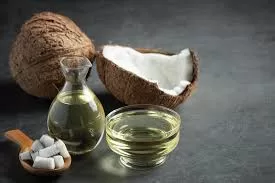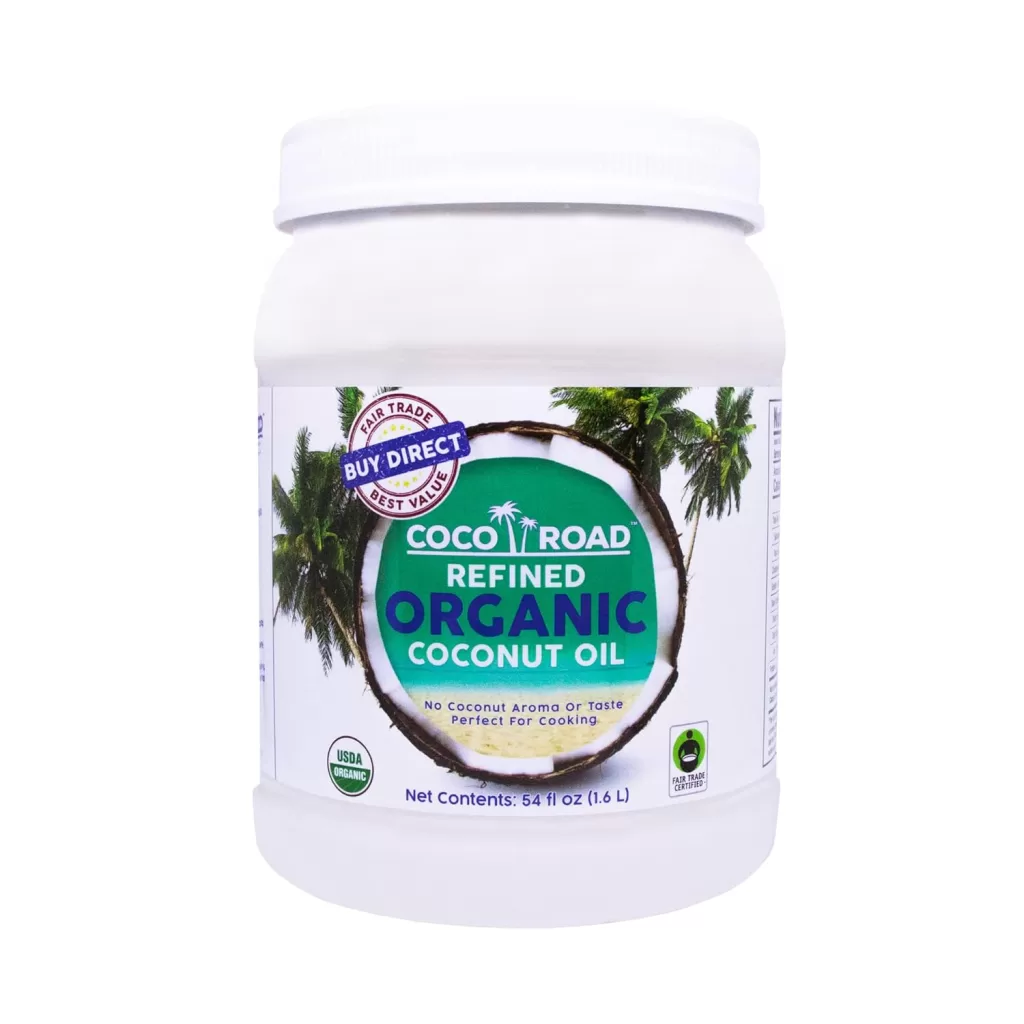Discover the Benefits of RBD Coconut Oil for Your Lifestyle
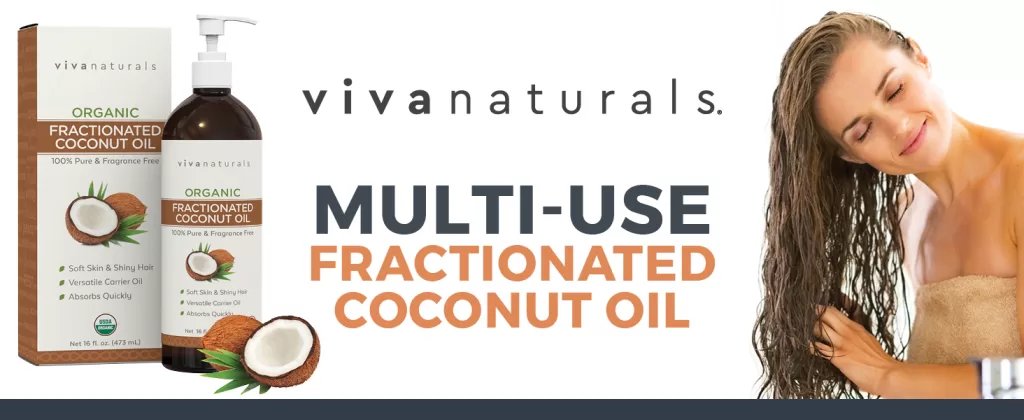
RBD Coconut Oil, short for refined, bleached, and deodorized coconut oil, is a staple for culinary and cosmetic uses. With its high smoke point, neutral flavor, extended shelf life, and numerous skincare benefits, it is a versatile product that caters to diverse needs. Let’s explore RBD Coconut Oil Benefits and advantages for cooking and beauty routines.
What is the difference between coconut oil and RBD coconut oil?
Commonly referred to as RBD, this type of coconut oil is significantly more processed than other types. Specifically, the crude oil undergoes a series of treatments: it is first refined to remove impurities, then bleached to lighten its color, and finally deodorized to eliminate its natural scent. As a result, the final product often has a darker color compared to unrefined coconut oil. Additionally, refined coconut oil is generally a more affordable option, making it a cost-effective choice for everyday use.
The Difference Between Coconut Oil and RBD Coconut Oil?
Coconut oil and RBD (Refined, Bleached, and Deodorized) coconut oil are not the same. While both are derived from coconuts, they undergo different processing methods, resulting in distinct characteristics. Here’s a breakdown of their key differences:
1. Processing Method
- Regular Coconut Oil (Unrefined/Virgin):
This type is extracted from fresh coconut meat using methods like cold-pressing or centrifugation. It undergoes minimal processing, retaining its natural flavor, aroma, and nutrients. - RBD Coconut Oil:
RBD coconut oil is made from dried coconut kernels (copra) and undergoes extensive processing. It is refined to remove impurities, bleached to lighten its color, and deodorized to eliminate its natural coconut scent. This results in a more neutral product.
2. Flavor and Aroma
- Regular Coconut Oil:
Unrefined coconut oil has a distinct coconut flavor and aroma, making it ideal for recipes where a tropical taste is desired, such as in baking or smoothies. - RBD Coconut Oil:
RBD coconut oil has a neutral flavor and odor due to the deodorizing process. This makes it a versatile option for cooking and frying, as it won’t overpower the taste of other ingredients.
3. Color and Appearance
- Regular Coconut Oil:
Unrefined coconut oil typically has a clear to slightly cloudy appearance and a pure white color when solid. - RBD Coconut Oil:
RBD coconut oil is often lighter in color and more transparent due to the bleaching process. It may also appear more uniform in texture.
4. Smoke Point
- Regular Coconut Oil:
Unrefined coconut oil has a lower smoke point (around 350°F or 175°C), making it better suited for low to medium-heat cooking. - RBD Coconut Oil:
RBD coconut oil has a higher smoke point (around 400°F or 204°C), making it more suitable for high-heat cooking methods like frying and sautéing.
5. Nutritional Content
- Regular Coconut Oil:
Unrefined coconut oil retains more of its natural antioxidants and nutrients, such as vitamin E and polyphenols, due to minimal processing. - RBD Coconut Oil:
While RBD coconut oil still contains medium-chain triglycerides (MCTs), some nutrients and antioxidants may be reduced during the refining process.
6. Cost and Availability
- Regular Coconut Oil:
Unrefined coconut oil is often more expensive due to its less processed nature and higher nutrient retention. - RBD Coconut Oil:
RBD coconut oil is generally more affordable and widely available, making it a practical choice for everyday cooking.
Which Should You Choose?
By following these guidelines, you can confidently use RBD coconut oil for deep frying, ultimately achieving crispy, delicious results. Additionally, you’ll be able to take advantage of its stability and health benefits, making it a practical and reliable choice for your high-heat cooking needs. Furthermore, its neutral flavor ensures that your dishes retain their intended taste, while its high smoke point guarantees consistent performance. In summary, RBD coconut oil is a versatile and effective option for deep frying, allowing you to create restaurant-quality meals at home with ease.
By understanding these differences, you can select the right type of coconut oil for your specific needs.
How RBD Coconut Oil Is Produced
Producing RBD (Refined, Bleached, and Deodorized) coconut oil is a detailed process that transforms crude coconut oil into a clear, odorless product.
Here’s how it’s done:
1. Harvesting and Kernel Extraction
- Begin with mature coconuts.
- Remove the flesh from the outer shell and extract the white kernel.
2. Reducing Moisture – Drying
- Dry the coconut kernel to eliminate excess moisture.
- Techniques like sun drying or using mechanical dryers are common methods.
3. Initial Oil Extraction
- Extract crude oil from the dried kernel.
- Methods include cold-pressing or expeller-pressing.
- Result: An oil with a distinct coconut aroma and some impurities.
4. Refining Process
This crucial stage ensures the transformation from crude to refined oil:
Neutralization
- Add alkaline substances like sodium hydroxide.
- Neutralize free fatty acids and remove impurities.
Bleaching
- Use activated charcoal or clay.
- Remove pigments, residual impurities, odors, and flavors.
Deodorization
- Heat oil under vacuum.
- Eliminate coconut scent and flavor by removing volatile compounds.
5. Filtration and Purification
- Ensure all remaining impurities are filtered out.
- Result: A clear oil, free of solids.
6. Rigorous Quality Control
- Conduct tests to ensure the oil meets purity and aroma standards.
- Compliance with industry regulations is verified.
7. Final Packaging
- Once quality is assured, package the oil in appropriate containers.
- Packaging ranges from small bottles to large drums for various markets.
This entire process ensures that the RBD coconut oil is of high quality, making it suitable for various culinary and industrial uses, completely free from the natural coconut scent and flavor.
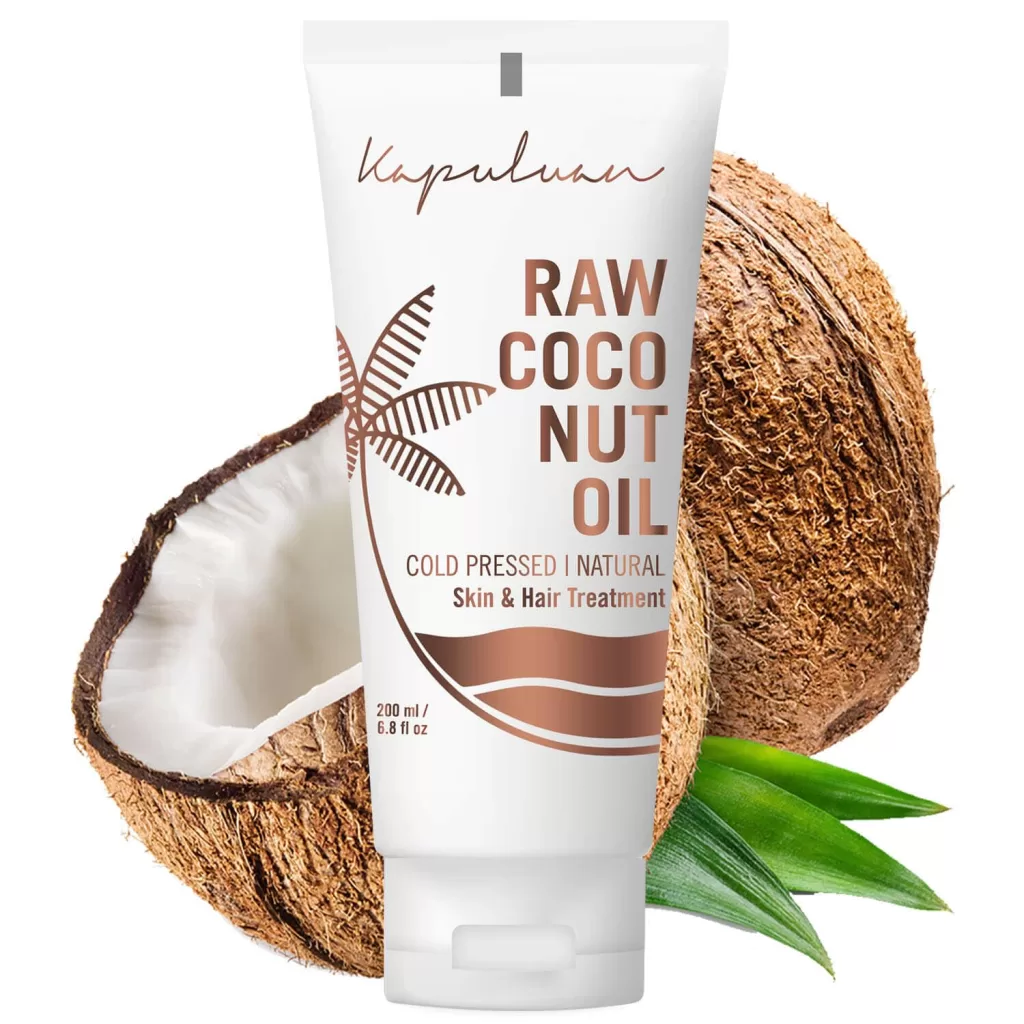
Raw Coconut Oil for Skin, Hair – Raw Extra Virgin Coconut Oil – Pure Unrefined Cold Pressed Oil with MCTs for Body Care, Hair Growth, Aceite de Coco Natural..
What Are Medium-Chain Triglycerides (MCTs) and Why Are They Important in RBD Coconut Oil?
Medium-chain triglycerides (MCTs) are a type of fat found in various oils, notably in refined, bleached, and deodorized (RBD) coconut oil. These fats are composed of shorter chains of carbon atoms compared to the long-chain triglycerides (LCTs) found in many other common fats.
Why Are MCTs Special?
- Rapid Digestion: MCTs are known for their ability to be quickly absorbed by the body. Unlike long-chain fats, they are transported directly to the liver and used as a source of immediate energy. This means they can be an efficient energy source without requiring storage as body fat.
- Energy Boost: The quick conversion of MCTs into energy makes them particularly appealing for people seeking an extra energy boost. They are often used by athletes and those looking for a fast-acting energy source.
- Potential Health Benefits:
- Weight Management: Research suggests MCTs may aid in weight management by increasing feelings of fullness and enhancing calorie burning.
- Cognitive Function: There is ongoing research into how MCTs may support brain health. Some studies suggest these triglycerides could potentially enhance cognitive function, making them a hot topic in nutrition and health discussions.
Importance in RBD Coconut Oil
RBD coconut oil undergoes a refining process that enhances its versatility, making it suitable for cooking and cosmetic applications due to its neutral taste and smell. The presence of MCTs in RBD coconut oil elevates its nutritional value, offering these unique health benefits without sacrificing the oil’s practicality for everyday use.
In summary, MCTs play a crucial role in distinguishing RBD coconut oil as not just a cooking aid but also a component linked with energy metabolism and potential health improvements.
Steps Involved in Refining RBD Coconut Oil
Refining Refined, Bleached, and Deodorized (RBD) coconut oil transforms crude oil into a clear, odorless end product. Here’s how the process unfolds:
1. Extraction of Crude Oil
- Harvesting and Preparation: Mature coconuts are harvested, the flesh is separated, and the white kernel is isolated.
- Drying: The kernel undergoes drying, often through sun or mechanical methods, reducing moisture content.
- Oil Extraction: The dried kernel is pressed to produce crude coconut oil. This oil retains impurities and a natural coconut scent.
2. Refining Process
The refining process is crucial to remove impurities and achieve a neutral oil. It involves several stages:
Neutralization
- Alkaline Treatment: Crude oil is treated with an alkaline solution, such as sodium hydroxide. This step neutralizes free fatty acids and eliminates other impurities, stabilizing the oil.
Bleaching
- Pigment Removal: Activated charcoal or clay is used to bleach the oil. This step targets pigments, deodorizes, and strips residual impurities, enhancing clarity.
Deodorization
- Odor Elimination: The oil is heated under vacuum conditions to remove volatile compounds. This procedure strips away the coconut scent and flavor, leaving a neutral base.
3. Filtration
After refining, the oil is filtered to ensure it’s free from any remaining particles or solids, attaining a clear consistency.
4. Quality Assurance
- Standards Compliance: Refined oil is subjected to rigorous quality control tests to confirm it meets industry standards for purity and neutrality.
5. Packaging and Distribution
Once the oil passes quality checks, it’s packaged into containers suitable for its intended market. These might range from small bottles to large drums, depending on the destination and use.
This comprehensive refining process results in RBD coconut oil that is pure, neutral, and versatile for a variety of applications.
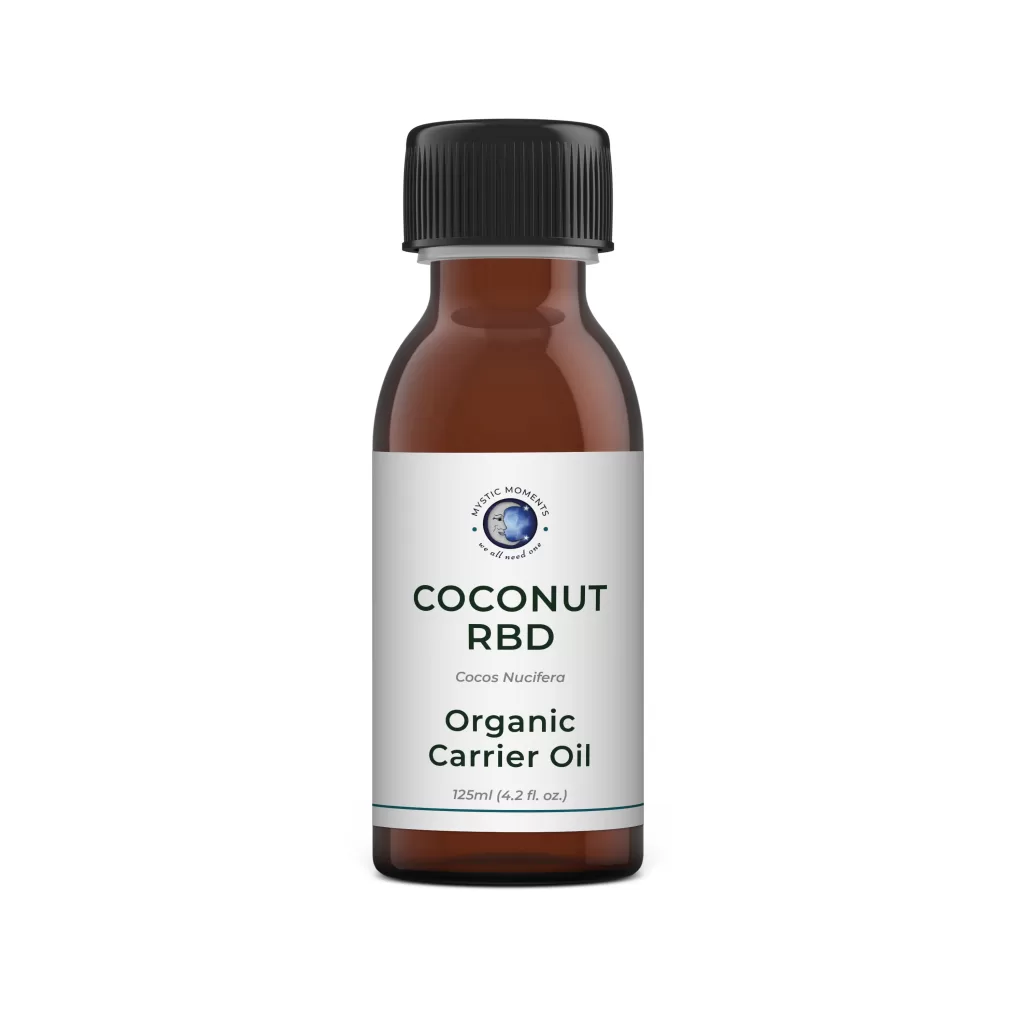
Coconut RBD Organic Carrier Oil is an excellent emollient well known for its ability to soften and re-condition the skin. It is rich in vitamin E and proteins which moisturise and protect your skin and hair.
Coconut Water: Nature’s Hydration Hero
Coconut water is a refreshing and nutritious drink that’s packed with electrolytes like potassium, magnesium, sodium, and calcium. It’s a great natural alternative to sugary sports drinks, offering hydration without the artificial additives.
Why Choose Coconut Water?
- Natural Electrolyte Blend: Replenishes essential minerals lost through sweat.
- Low-Calorie Hydration: A guilt-free way to stay hydrated.
- Natural Sweetness: Satisfies your sweet tooth without added sugars.
Incorporating Coconut Water into Your Routine:
- Post-Workout Recovery: Replenish electrolytes and reduce muscle soreness.
- Daily Hydration: A refreshing and healthy beverage choice.
- Cooking and Baking: Add a natural sweetness to recipes.
Consider sourcing your coconut water from trusted suppliers like CV Bonafide Anugerah Sentosa for the highest quality product.
What are the advantages of using Refined, Bleached & Deodorized coconut oil in food and cosmetics?
RBD coconut oil, which stands for Refined, Bleached, and Deodorized coconut oil, offers several advantages for both food and cosmetic applications:
Refined, Bleached & Deodorized Coconut Oil for Cooking
- High Smoke Point
RBD coconut oil boasts a high smoke point, making it ideal for high-heat cooking methods such as frying, sautéing, and baking. Unlike oils with lower smoke points, it does not break down easily at high temperatures, ensuring a safe and flavorful cooking experience. - Neutral Flavor
Unlike virgin coconut oil, which has a pronounced coconut taste, RBD coconut oil is both odorless and has a neutral taste. This makes it perfect for a wide range of dishes, from savory stir-fries to baked goods, without altering the recipe’s intended flavor. Its versatility allows it to blend seamlessly into any cuisine, ensuring that the natural taste of your ingredients shines through. - Longer Shelf Life
The refining process used in producing RBD coconut oil extends its shelf life, making it a reliable option for long-term storage. It remains stable for months without losing quality, ensuring its utility in your pantry.
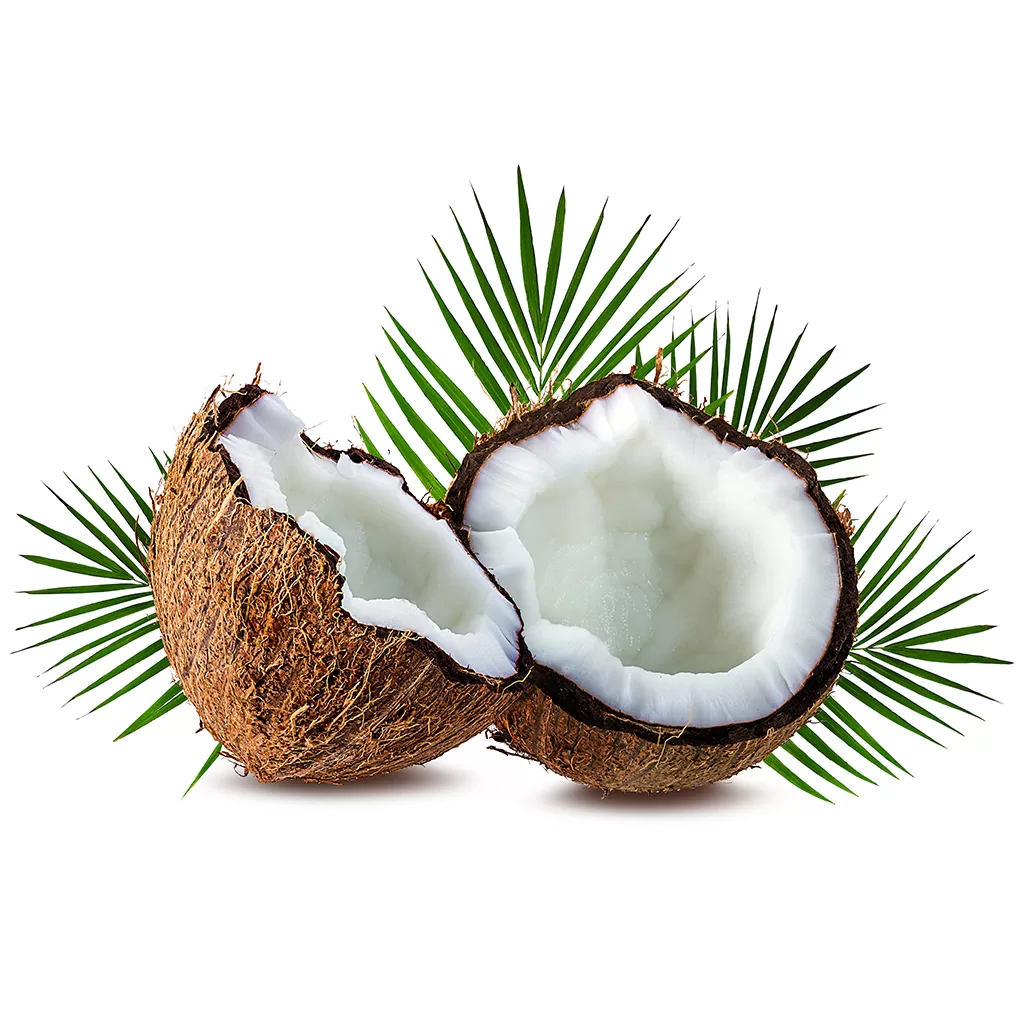
RBD Coconut Oil in Cosmetics
- Moisturizing Properties
Rich in fatty acids, RBD coconut oil is a natural emollient that hydrates and nourishes both skin and hair. It helps to lock in moisture, leaving your skin soft and your hair shiny and manageable. - Antimicrobial Properties
Some studies suggest that coconut oil has antimicrobial qualities, which may help in protecting the skin from minor infections and maintaining its health. - Antioxidant Properties
Loaded with antioxidants, coconut oil helps protect the skin from damage caused by free radicals, reducing signs of aging and promoting a radiant complexion.
Can RBD Coconut Oil Improve Digestion?
RBD coconut oil, a refined form of coconut oil, has long been associated with benefits for digestive health. But how does it stand up to its digestive-boosting claims?
- Digestive Aid: Many people turn to RBD coconut oil for its potential to ease digestive issues. It’s rich in medium-chain triglycerides (MCTs), which are easier for the body to absorb and metabolize. This feature may help in maintaining smoother digestion.
- Gut Health Support: The oil’s antimicrobial properties could contribute to a healthier gut environment by combating harmful bacteria. This may promote better gut flora balance when consumed in moderation.
- Traditional Uses: In various cultures, coconut oil has been traditionally used to alleviate stomach discomfort. This historical use adds a layer of anecdotal support to its digestive benefits.
It’s important to remember to use RBD coconut oil in moderation as part of a balanced diet to potentially benefit your digestive system.
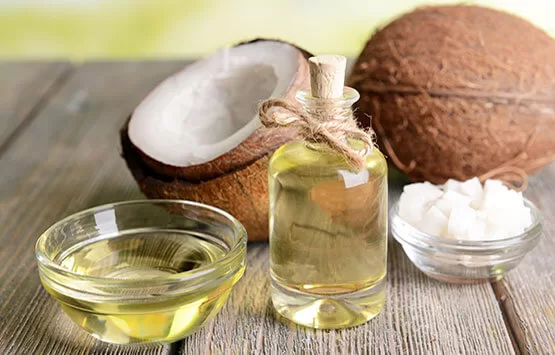
FAQs: RBD Coconut Oil Benefits
1. What makes Refined, Bleached & Deodorized coconut oil different from virgin coconut oil?
RBD coconut oil undergoes refining, bleaching, and deodorizing, resulting in a neutral flavor, higher smoke point, and longer shelf life. Virgin coconut oil retains its natural aroma and flavor but has a lower smoke point.
2. Is RBD coconut oil safe for frying?
Yes, RBD coconut oil’s high smoke point makes it an excellent choice for frying and other high-heat cooking methods.
Is RBD Coconut Oil Safe for Deep Frying?
Yes, RBD (Refined, Bleached, and Deodorized) coconut oil is an excellent choice for deep frying due to its unique properties. Here’s why it’s ideal for this cooking method and how to use it effectively:
Why RBD Coconut Oil is Great for Deep Frying
- High Smoke Point
RBD coconut oil has a high smoke point of around 400°F (204°C), which makes it stable at the high temperatures required for deep frying. This means it won’t break down easily, produce harmful compounds, or create excessive smoke during cooking. - Neutral Flavor
Unlike unrefined coconut oil, RBD coconut oil has a neutral taste and aroma. This makes it versatile for frying a variety of foods without imparting a coconut flavor. - Long Shelf Life
RBD coconut oil is resistant to oxidation due to its high saturated fat content. This makes it less likely to go rancid, even when used repeatedly for frying. - Health Benefits
While it’s still a fat, RBD coconut oil contains medium-chain triglycerides (MCTs), which are not only metabolized differently than other fats but also provide a quick source of energy. Additionally, in moderation, it can be a better option when compared to oils high in trans fats or polyunsaturated fats, especially since these fats are often linked to negative health effects. Therefore, RBD coconut oil offers a more stable and health-conscious choice for cooking and frying.
How to Use RBD Coconut Oil for Deep Frying
- Choose the Right Oil
Ensure you’re using RBD coconut oil, as unrefined (virgin) coconut oil has a lower smoke point and a stronger flavor, making it less suitable for deep frying. - Heat the Oil Properly
Preheat the oil to the recommended frying temperature, typically between 350°F and 375°F (175°C–190°C). Use a kitchen thermometer to monitor the temperature and avoid overheating. - Avoid Overcrowding the Fryer
Add food in small batches to prevent the oil temperature from dropping too much, which can lead to greasy, unevenly cooked food. - Reuse the Oil (With Caution)
RBD coconut oil can be reused a few times if strained and stored properly. However, discard it if it develops an off smell, dark color, or excessive foam. - Store Correctly
After frying, let the oil cool completely, then strain it through a fine mesh or cheesecloth to remove food particles. Store it in an airtight container in a cool, dark place.
Tips for Best Results
- Pair RBD coconut oil with foods that complement its mild flavor, such as fried chicken, tempura, or doughnuts.
- Avoid mixing RBD coconut oil with other oils, as this can lower its smoke point and affect performance.
- Use a deep fryer or heavy-bottomed pot to maintain consistent heat and prevent splattering.
By following these guidelines, you can confidently use RBD coconut oil for deep frying, achieving crispy, delicious results while taking advantage of its stability and health benefits.
3. Can Refined, Bleached & Deodorized coconut oil be used as a moisturizer?
Absolutely! RBD coconut oil is effective in hydrating and nourishing the skin and hair.
4. Does RBD coconut oil have health benefits?
Yes, it offers moisturizing, antimicrobial, and antioxidant properties, making it beneficial for skincare and overall health.
By integrating R B D coconut oil into your kitchen and beauty routines, you can enjoy its multifaceted benefits. Whether for cooking or skincare, this oil proves to be an invaluable addition to your lifestyle.
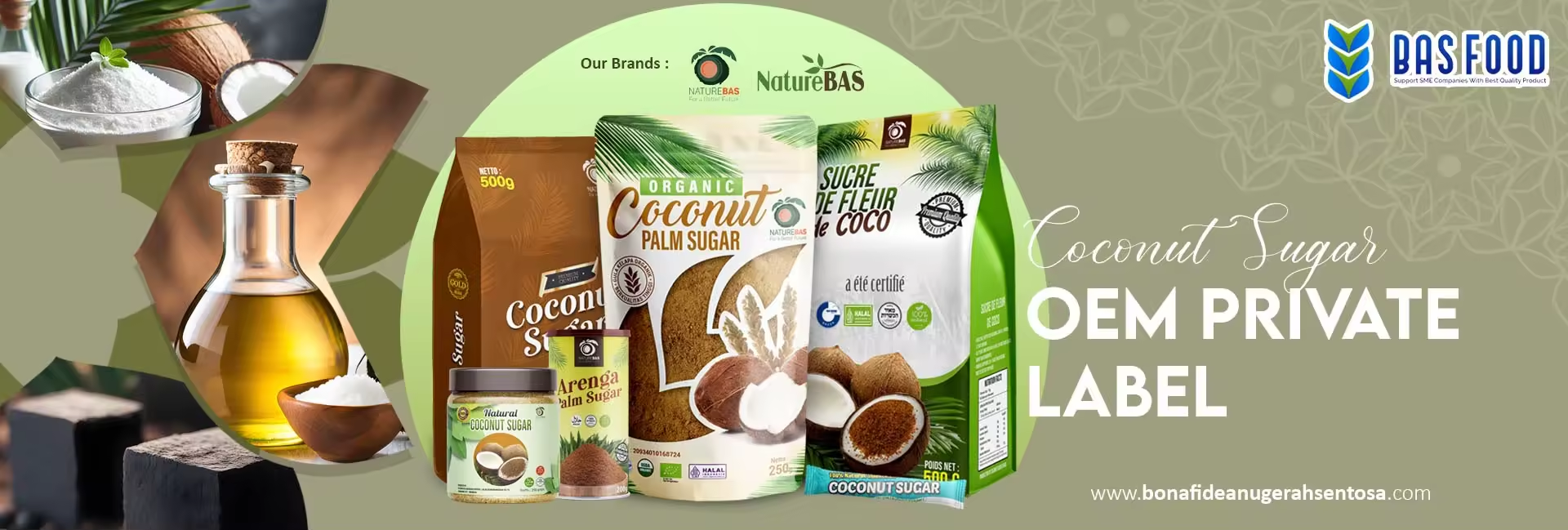
Explore more articles like this @ Where And How Resources
If you found this article helpful, don’t forget to share it with your friends and followers!

